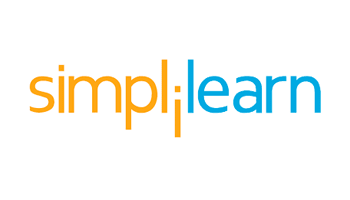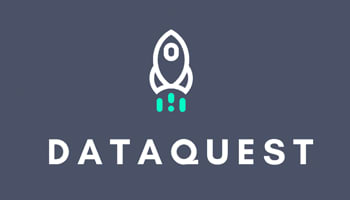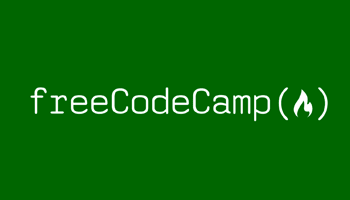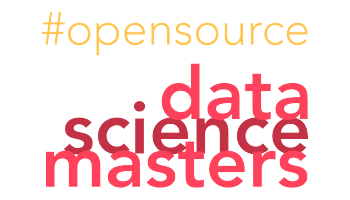Discover the best resources to learn data mining and big data for free in 2023.
The most valuable thing companies want from customers is no longer money - it's data.
The largest companies in the world are constantly fighting for your data.
They’re even willing to get your data by any means necessary.
Facebook is known to have been found guilty of such naughtiness.
However, scandals aside, the demand for getting data isn’t going anywhere, therefore if you’re a newbie developer or currently learning how to code, then this could be a field you might want to consider.
Two key fields that can equip you with the skills to derive value from data in the technical field are Data Mining and Big Data.
Let’s briefly explore what they are:
What is Data Mining?
Data mining is the process of analysing large datasets to identify patterns and extract meaningful information.
It utilises sophisticated algorithms and statistical models to segment, classify, predict and associate.
The key processes in data mining include data cleaning, integration, selection, transformation, mining, pattern evaluation, and knowledge representation.
Common techniques used are clustering, classification, regression, association rule mining, and anomaly detection.
Data mining helps make data useful.
What is Big Data?
Big data refers to extremely large and complex datasets that traditional data processing techniques cannot easily handle.
It is characterised by the 3Vs - large volumes of data, high velocity or speed of data generation and capture, and variety in data types and sources.
With the growth of the Internet, social media, IoT devices and more, big data has become more and more important.
However, it presents challenges like storage, processing, analysis, visualisation and security.
The Difference between Data Mining and Big Data
While the two fields are closely related, data mining focuses on extracting patterns and insights from data using various techniques.
Whereas big data deals with the difficulties posed by large, complex datasets in terms of storage, management, analysis and privacy.
Data mining techniques can be applied to big data to get meaningful conclusions.
Data Mining and Big Data Career Opportunities
With companies aiming to extract the best value from data, there are several career roles to consider that are in high demand such as:
- Data Scientists
- Data Engineers
- Big Data Architects
- Business Intelligence Developers
These roles also command competitive salaries and the analytics job market is projected to grow rapidly over the next decade.
Sounds interesting right?
So how do you get started?
If you’re already learning or have skills in languages such as Python, then that’s a great start.
However, there are also tons of resources available online specifically to help you start learning more about data mining and big data.
Here are the best 5 resources where you can learn about data mining and big data for free today:
#1 - Great Learning
Great Learning offers a free online Data Mining course, that’s great for beginners.
Led by industry experts, the course provides a detailed understanding of data description, manipulation, skewness using histograms, visualisation techniques like boxplots and scatter plots, and goes deep into machine learning concepts including regression analysis.
After completing the course, you’ll be assessed and awarded a certificate which is a nice touch!
#2 - Simplilearn
Simplilearn's Introduction to Data Mining course gives you a deep dive into data mining essentials, which will give you practical skills using tools like R Studio and RapidMiner.
Through hands-on and live tutorials, you’ll gain expertise in identifying data mining issues using cutting-edge tools.
The course covers key areas including statistics, machine learning techniques, data collection and cleaning, data analysis, and interpretation.
#3 - Cognitive Class by IBM
IBM's Cognitive Class offers a great free Data Science Fundamentals course, guiding you from the basics to more advanced stages of data science.
The course covers data compilation, preparation, modelling, methodologies, and advanced algorithms, emphasising hands-on experience with open-source tools.
On successful completion you’ll be awarded with the "Data Science Foundations" badge, marking your proficiency in the subject - another win!
#4 - Alison
Alison's free online course on Mining and Analysis of Big Data will give you the skills to mine and evaluate big data, a technique prevalent in various sectors including business and government.
The course not only guides you on creating clustering data models for informed decision-making but also goes into defining and explaining association rule mining, the apriori algorithm, the four V's of big data, and the intricacies of social media data.
You will also explore the differences between clustering and classification, understand the various clustering types, and deep dive into topics like K-Means clustering, k-meloids, and multi-choice problem-solving, including the n-arm bandit problem.
#5 - DataQuest
DataQuest offers engaging data science courses designed to transform beginners into proficient professionals in just months.
By prioritising hands-on learning, DataQuest uses interactive coding exercises and compelling projects over traditional boring videos.
DataQuest provides loads of free course content, with premium options featuring tutored projects available.
They also offer specialised tracks for data analysts, data scientists, and data engineers, with endorsements from industry giants like Uber, Amazon, and Spotify.
Honorary Mentions:
FreeCodeCamp
As mentioned before knowing Python is a great way to begin working with Data.
And FreeCodeCamp's Data Analysis with Python Certification course provides an in-depth exploration of data analysis, which shifts the focus from traditional closed-source tools like Tableau to more modern, open-source options like Python and SQL.
By completing this course, you will gain proficiency in reading data from sources such as CSVs and SQL, and in using key libraries like Numpy, Pandas, Matplotlib, and Seaborn for data processing and visualisation.
Data Science Masters
The Open Source Data Science Masters (OSDSM) is an open-source curriculum designed for aspiring Data Scientists covering everything you need for an entry-level Data Scientist role.
Designed to rival paid courses in quality, the program offers open-source materials, with recommended books.
The curriculum is structured into four main sections: foundational core lessons, specialised topics, practical aspects of data science, and the culminating Capstone project.
Although there’s no specific accreditation, graduates can add a Credential from OSDSM on their LinkedIn.
Data is like the new oil, and data mining and big data skills will allow you to extract the best value from it.
As you’ve seen, there are many high-quality free resources available online to start developing expertise in these in-demand fields.
Whether you want to become a data scientist, data engineer or business intelligence developer, these resources can provide a solid foundation of skills.
Continuing to build on them by analysing real-world datasets, contributing to open-source projects and showcasing skills in a portfolio can help land your first job.
The demand for data-driven roles will only grow in the future.
Now is the time to seize the major opportunities in data mining and big data by learning the skills to turn raw data into beneficial insights.
Before you know it, you'll be extracting hidden insights from data like a pro!
Just don’t be a naughty pro 😉
From your fellow ever-growing dev,
Cherlock Code
💙 If you liked this article...
I publish a weekly newsletter to a community of ever-growing developers, seeking to improve programming skills and stay on a journey of continuous self-improvement. Focusing on tips for powering up your programming productivity 🚀.
Get more articles like this straight to your inbox.
And stay in touch on 🐦❌ @evergrowingdev
And if you're looking for the right tools to build awesome things, check out Devpages.io, an ultimate hub I built with 100s of developer tools and resources 🛠











Top comments (2)
thanks a lot!
Some great resources in this one, Cherlock 🚀